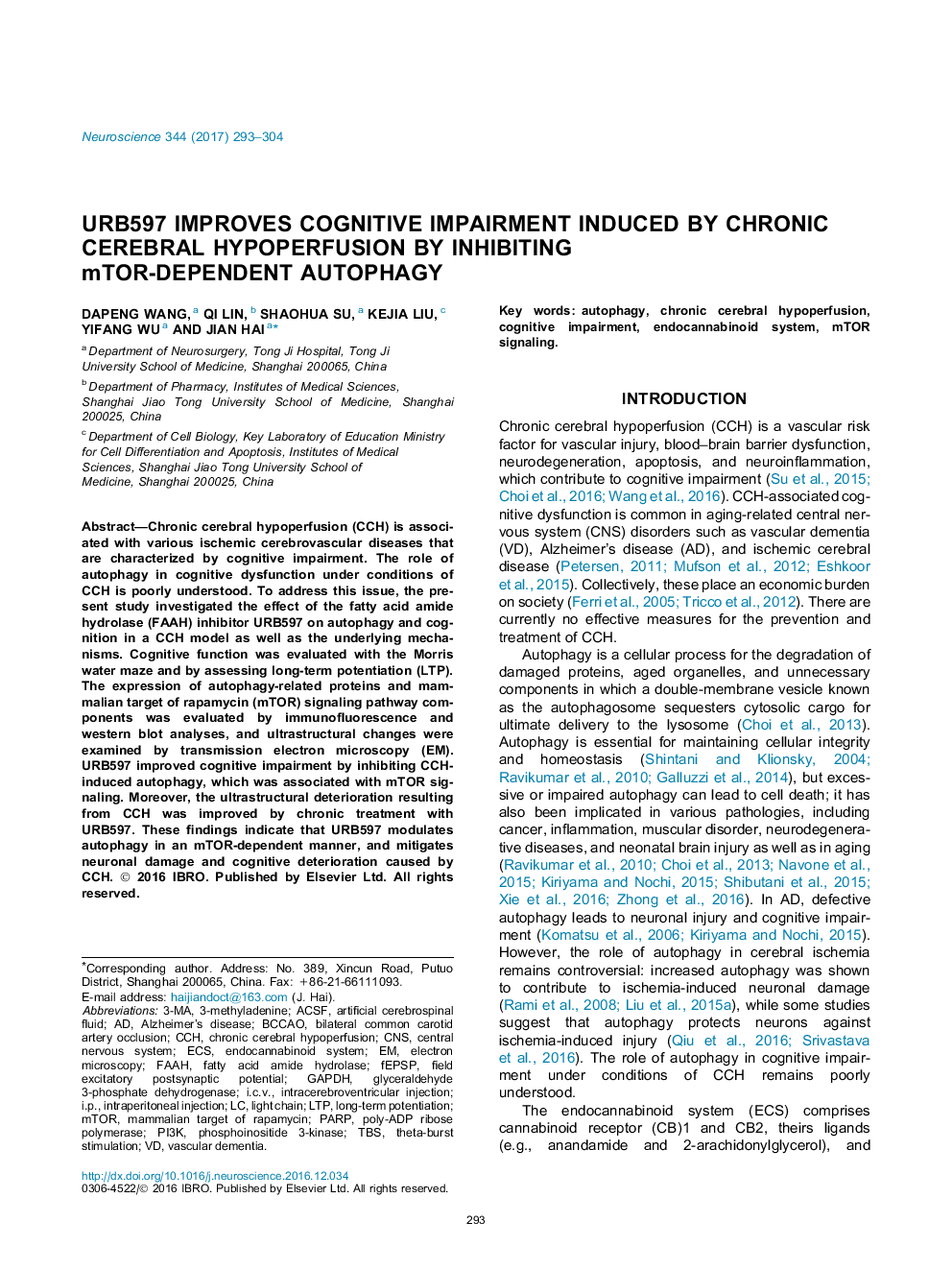| Article ID | Journal | Published Year | Pages | File Type |
|---|---|---|---|---|
| 5737745 | Neuroscience | 2017 | 12 Pages |
â¢URB597 inhibits autophagy in the hippocampal CA1 area induced by chronic cerebral hypoperfusion.â¢URB597 promotes mTOR phosphorylation in rats with chronic cerebral hypoperfusion.â¢URB597 may be a potential neuroprotective drug for cognitive impairment.
Chronic cerebral hypoperfusion (CCH) is associated with various ischemic cerebrovascular diseases that are characterized by cognitive impairment. The role of autophagy in cognitive dysfunction under conditions of CCH is poorly understood. To address this issue, the present study investigated the effect of the fatty acid amide hydrolase (FAAH) inhibitor URB597 on autophagy and cognition in a CCH model as well as the underlying mechanisms. Cognitive function was evaluated with the Morris water maze and by assessing long-term potentiation (LTP). The expression of autophagy-related proteins and mammalian target of rapamycin (mTOR) signaling pathway components was evaluated by immunofluorescence and western blot analyses, and ultrastructural changes were examined by transmission electron microscopy (EM). URB597 improved cognitive impairment by inhibiting CCH-induced autophagy, which was associated with mTOR signaling. Moreover, the ultrastructural deterioration resulting from CCH was improved by chronic treatment with URB597. These findings indicate that URB597 modulates autophagy in an mTOR-dependent manner, and mitigates neuronal damage and cognitive deterioration caused by CCH.
